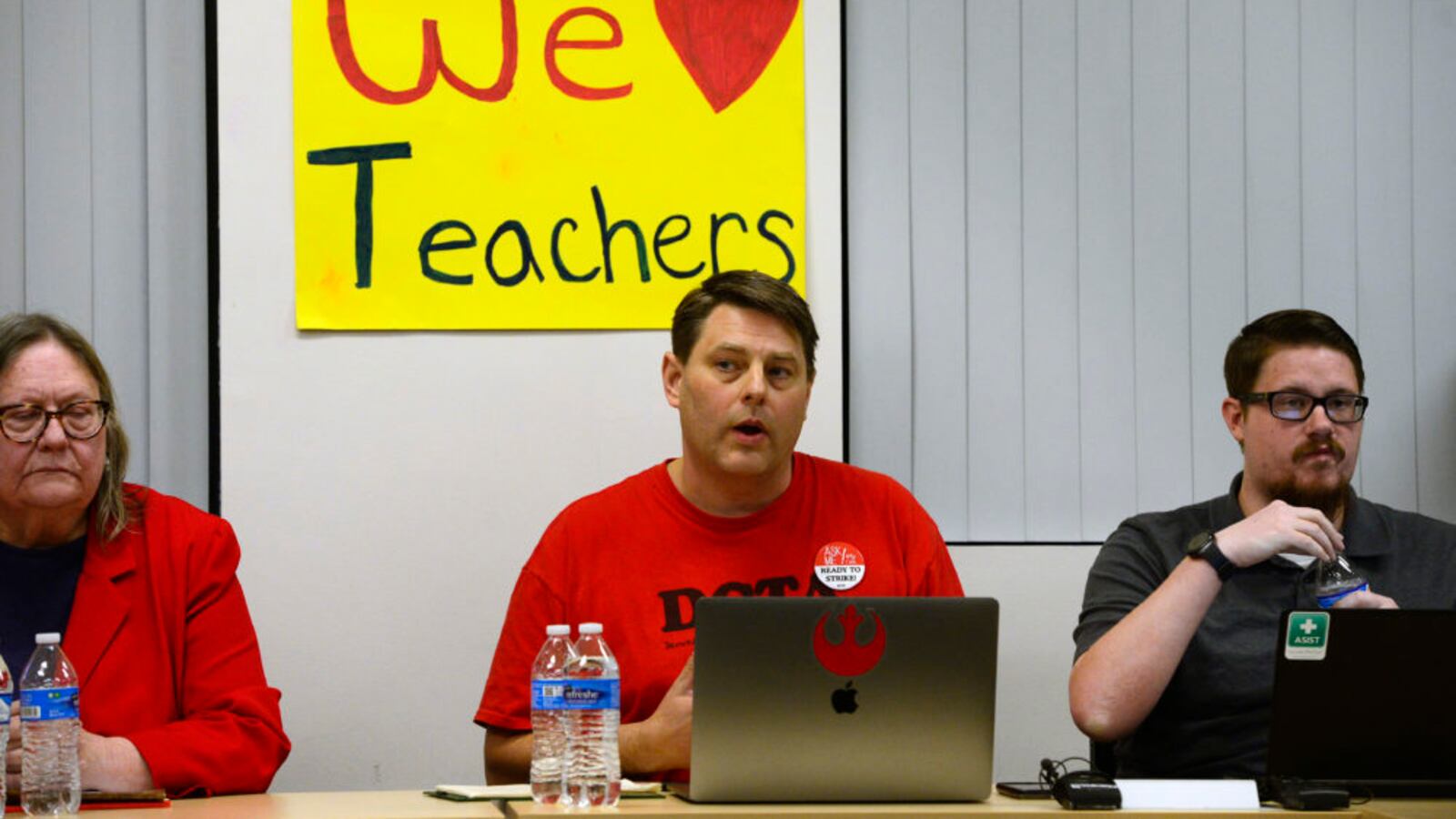Negotiations between the Denver school district and teachers union will resume Friday evening even as both sides brace for a strike that could start Monday.
Gov. Jared Polis announced Wednesday that he would not intervene in the labor dispute between the two sides, clearing the way for teachers to walk off the job. At the same time, he called on the district and the union to seize an “11th-hour opportunity” to reach a deal before a strike would begin Monday.
Denver Public Schools and the Denver Classroom Teachers Association confirmed Thursday that they’ll sit down at the bargaining table at 5 p.m. Friday in the Acoma facility, 1617 S. Acoma St.
Like other bargaining sessions, this one will be open to the public in accordance with state law. The last two sessions ended with the union rejecting district offers without making their own counterproposals.
Denver Public Schools and the teachers union have been negotiating the terms of the ProComp agreement, which governs bonuses and incentives that teachers earn on top of their base pay, for 15 months. The two sides are separated not just by several million dollars but by deep philosophical disagreements about how teachers should be paid.
The Denver school board held a press conference Thursday to encourage the two sides “to continue negotiations in good faith.” Reading from a prepared statement, board members said they were pushing for an agreement that increases teacher pay and “reflects our values,” including “attracting and retaining lifelong educators to high-needs subjects and schools.”
While the school board will have to approve whatever agreement the district and the union eventually reach, its members are not involved in negotiations or the details of financial modeling. Instead, they deal with big-picture policy questions.
One of the fiercest disagreements between the district and the union is whether to pay teachers at “highest-priority” schools a $2,500 annual incentive. District officials believe the incentive would help attract and retain good teachers at schools where students need them most. Union officials would like to use that money instead to increase the salaries of all teachers.
Board President Anne Rowe said the district’s proposal reflects the board’s values and the will of the voters who passed a tax to fund ProComp in 2005. But, she added, “I do think there are places where the district, along with the DCTA as a partner, can come together.”
Board members affirmed teachers’ right to strike and also noted the impact that a work stoppage could have on students and parents who may struggle to find child care. The district has announced it will cancel all preschool classes in the event of a strike because stricter state regulations make it more difficult to find substitute teachers for 3- and 4-year-olds.
“The stakes are high,” board member Jennifer Bacon said.
Melanie Asmar contributed to this report.

